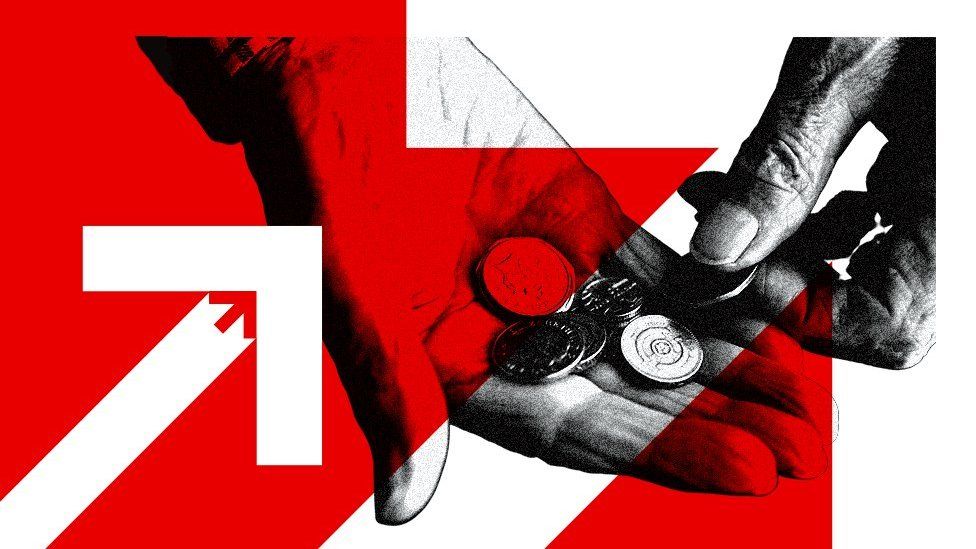[ad_1]

The rate at which prices are rising has dipped slightly, but remains high despite predictions it would come down further.
Soaring prices for bread, cereal and chocolate have helped push food prices to a 45-year high.
What does inflation mean?
Inflation is the increase in the price of something over time.
If a bottle of milk costs £1 but £1.05 a year later, then annual milk inflation is 5%.
How is the UK’s inflation rate measured?
To come up with an inflation figure, the Office for National Statistics (ONS) keeps track of the prices of hundreds of everyday items in an imaginary “basket of goods”.
Each month’s inflation figure shows how much these prices have risen since the same date last year.
You can calculate inflation in various ways, but the main measure is the Consumer Prices Index (CPI).
Why are prices rising so fast?
The soaring cost of food and energy have been key drivers of inflation.
Alcohol prices in restaurants and pubs also rose.
Your device may not support this visualisation
Are wages keeping up with inflation?
Pay increases for many people aren't keeping up with rising prices.
Throughout 2022, the average salary rose by nearly £3 a month.
But when you take inflation into account, the average salary actually fell by 2.4% in the three months to January, compared to the same period the year before.
What can be done to tackle inflation?
The Bank of England has a target to keep inflation at 2%, but the current rate is still more than five times that.
Its traditional response to rising inflation is to put up interest rates.
This makes borrowing more expensive, and can mean some people with mortgages see their monthly payments go up. Some saving rates also increase.
When people have less money to spend, they buy fewer things, reducing the demand for goods and slowing price rises.
Businesses also borrow less, making them less likely to create jobs, and may cut staff.
The next interest rate announcement is on 22 June.
But when inflation is caused by factors such as global energy prices, action from the Bank of England may not be enough to slow it down.
When will inflation come down?
Lower inflation does not mean prices fall. It just means they stop rising as quickly.
Announcing its latest interest-rate decision, the bank said inflation would "fall sharply in April" - those figures have yet to be released - but not as far or as fast as it had previously thought.
It says inflation is now expected to drop to 5% by the end of 2023, rather than the 4% previously predicted.
What's happening in other countries?
Other countries are also experiencing a cost-of-living squeeze.
Many of the reasons are the same - increased energy costs, shortages of goods and materials and the fallout from Covid.
[ad_2]
Source link

Leave a Reply